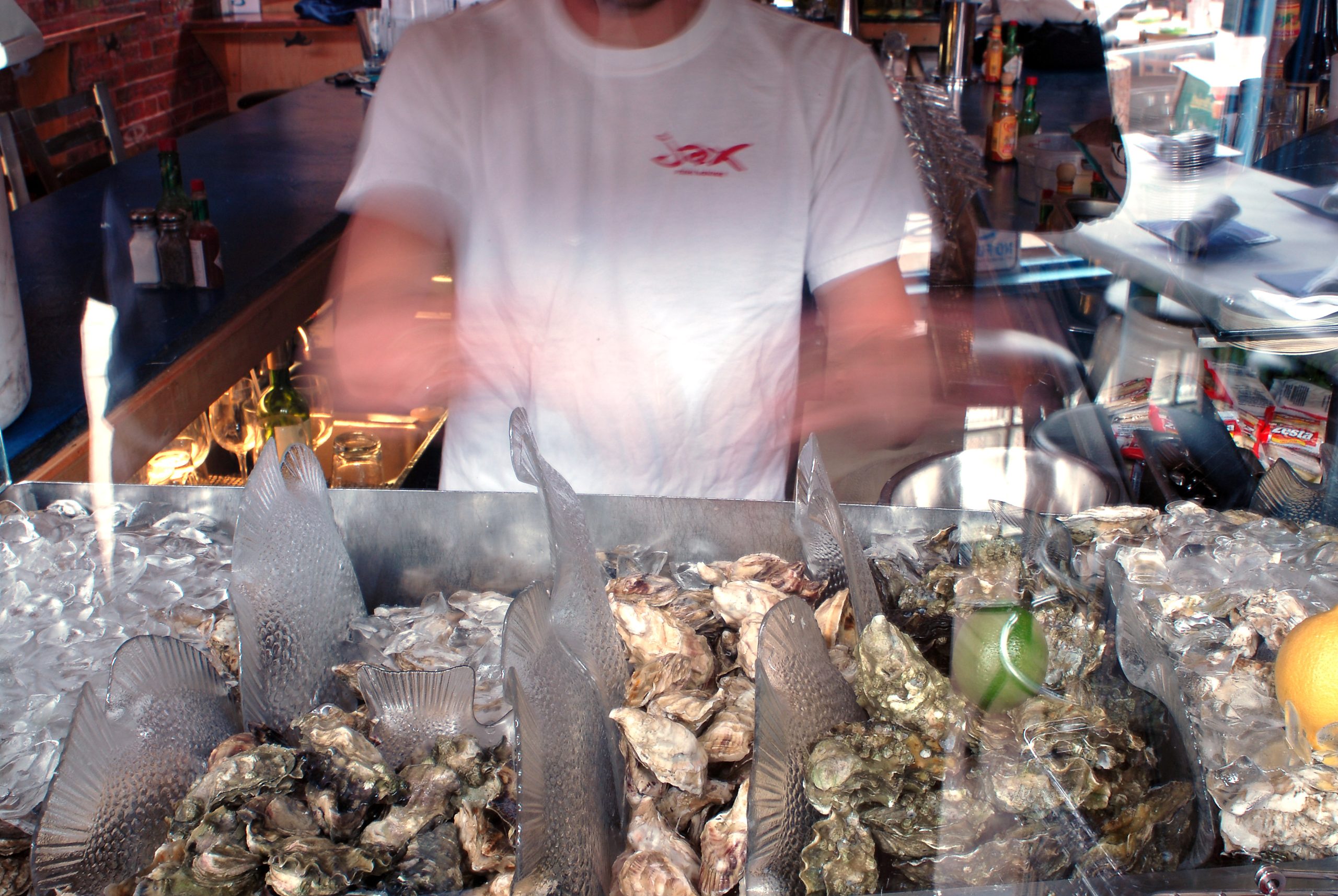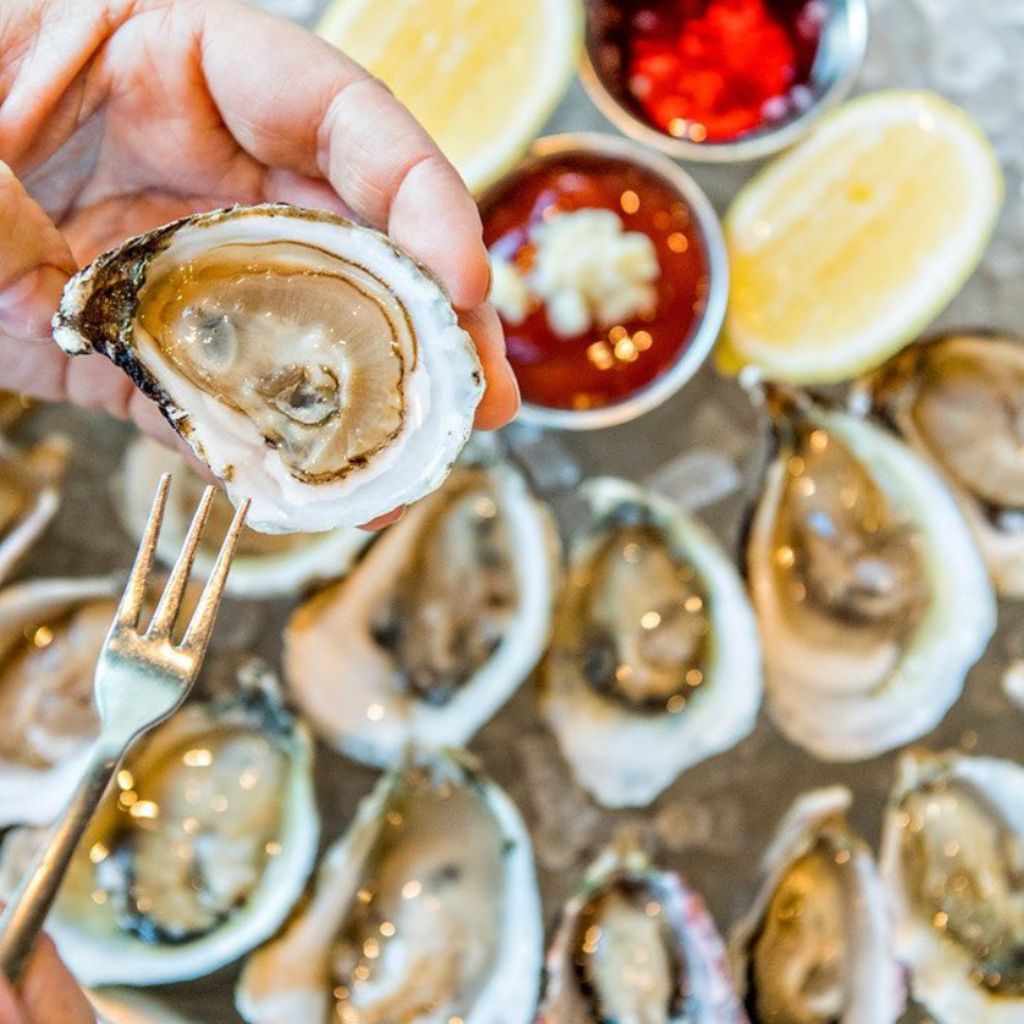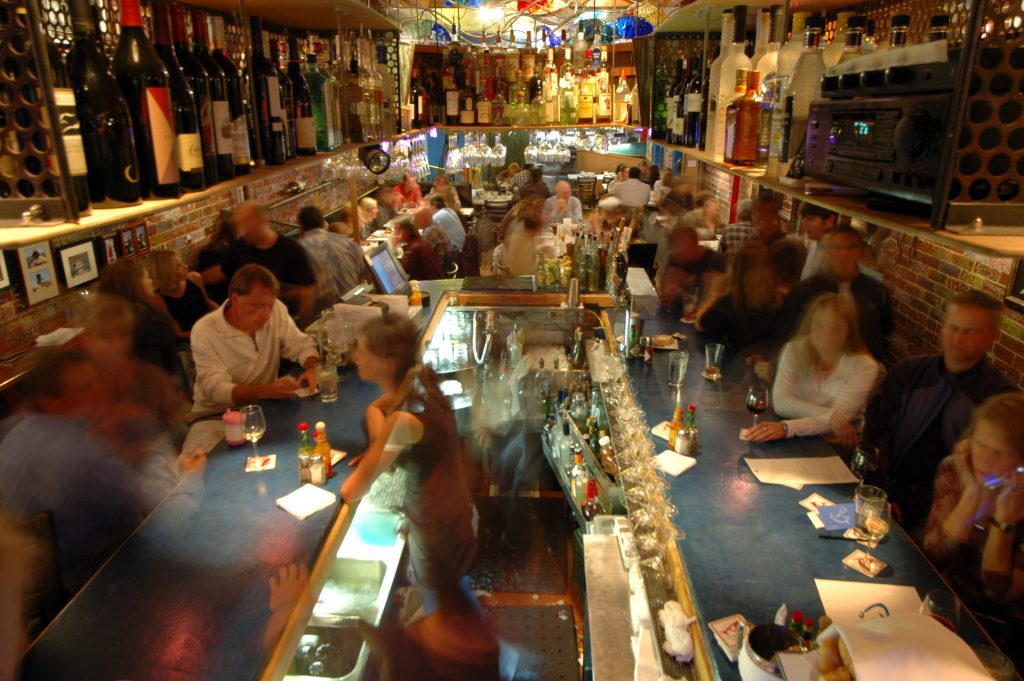
When Jax Fish House opened its doors at 928 Pearl St. on Nov. 18, 1994, it faced a wave of skepticism from Boulder diners who wondered how “fresh” Jax scallops, salmon and softshell crab could really be.
There weren’t many seafood-centric eateries in land-locked Boulder at the time. At 5,430 feet above sea level and at least 1,000 miles from the nearest coast, locals joked about “Rocky Mountain oysters.”
For chef Dave Query, who launched Jax Fish House and Boulder’s Big Red F Restaurant Group, the argument was always “ridiculous.”
“We could get seafood here as perfectly fresh as restaurants anywhere in the country because of Denver International Airport,” he says. “Every single flight coming in was loaded with fresh produce and fish.”
Query decided to snap up a space on Pearl Street that was previously home to the Small Wonder Cafe.
“We had just opened Zolo Grill in Boulder a few months earlier, but I said, ‘Oh, hell yeah,’” Query recalls. “I just loved that West Pearl funky little space.”
Thirty years and millions of oysters later, Big Red F operates the West End Tavern, Velvet Elk Lounge and Centro Mexican Kitchen, seven Post Chicken & Beer locations and five Jax Fish House restaurants in Colorado.

Bringing oysters to Boulder
When Jax opened as Boulder’s first true oyster bar, it started sourcing bivalves from Blue Points to Kumamoto from various coasts. While freshness wasn’t an issue, Query says securing enough high-quality oysters proved a huge challenge because of ocean pollution.
“Oysters are one of the most sustainable organisms around: They are designed for filtering water,” he says. “You can’t grow them in contaminated water, or you’ve got a contaminated oyster.”
Some restaurants contract with farmers to grow specific vegetables for their restaurants, so why not oysters? After Query and company sampled the sweet bivalves grown in Virginia’s Rappahannock River, Big Red F partnered with Rappahannock Oyster Co. to grow the Emersum oysters dished only at Jax locations since 2010.
Seafood sustainability
Over the past 30 years, overfishing, ocean pollution and climate change have impacted fisheries across the globe.
“A lot of the fisheries were not sustainable, and there were serious questions about the quality of seafood,” Query says. That’s when a newly hired chef, Sheila Lucero, brought sustainability to the forefront at the restaurants.
Now culinary director at Jax, Lucero worked to make it the first Colorado restaurant recognized by the Monterey Bay Seafood Watch, an organization working to protect threatened species. That has entailed many things over the years, including serving certain types of fish — which can help rid the waters of invasive species — and not serving others that are threatened or endangered.
“Sheila was the one who spearheaded it,” Query says. “She recognized that sustainability was the key to our long-term success, and the long- term success of the oceans and the human race.”

The oyster shell game
It’s not just the sourcing of bivalves that Jax aims to make sustainable; when you shuck tens of millions of oysters, thoughtful disposal of the shells becomes a great responsibility. Originally, Query says, the shells were shipped back to coastal farms to help grow new oysters.
“It was a contradiction: If you are supporting sustainability practices and regenerative farming, how can you create a pretty big carbon trail flying the shells back?” he says.
For a while, the oyster shells were picked up by Midwestern contractors who crushed them. According to Query, “they make for a really nice driveway.”
Closing the oyster shell loop remains a conundrum.
“Now,” says Query, “I’m trying to find an organic fertilizer company that will take the shells for free and grind them into a great fertilizer material.”
Dishing fish
An array of notable chefs have cooked at Jax’s stoves, including Hosea Rosenberg, 2009 Top Chef winner and owner of Boulder’s Blackbelly and Santo restaurants.
Jax — which recently underwent its first major renovation — is one of the few ’90s-era Boulder eateries that are still open. That roster also includes the Flagstaff House, Lucile’s Creole Cafe, Ras Kassa’s, The Gondolier, Greenbriar Inn and The Sink.
Since it opened in 1994, the narrow, brick-lined location remains the same. But everything else evolved, according to Query.
“The party we put on 30 years ago is not the party that we’ll put on tonight,” he says. “The guests are different and so are the cooks and servers. It’s been a huge job to curate a 30-year party and still keep it relevant.
“I may not be shucking oysters 30 years from now, but there’s a good chance someone else will be.”
